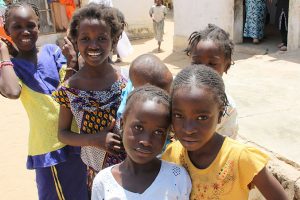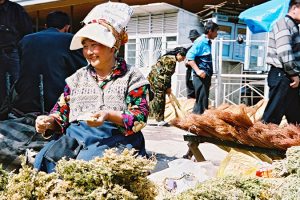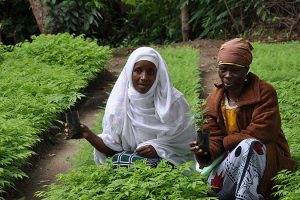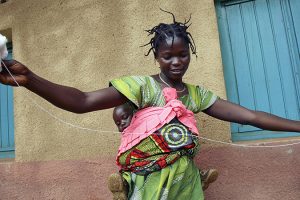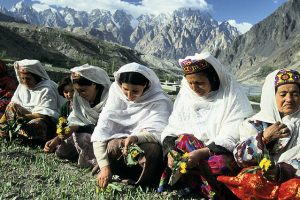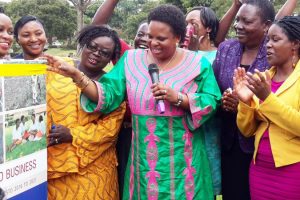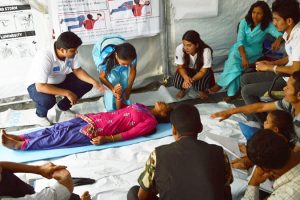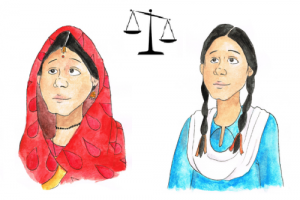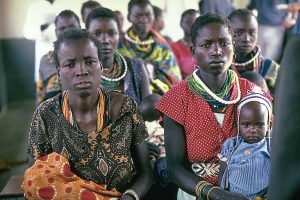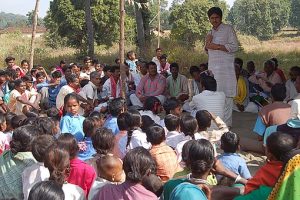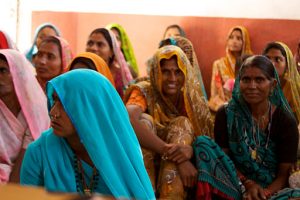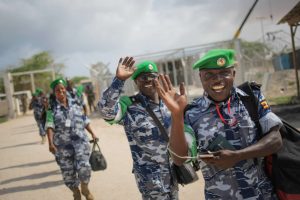Informal Institutions
Institutional Diagnostic Synthesis
The Institutional Diagnostic synthesis is the culmination of the research undertaken in the four EDI case studies in Bangladesh, Benin, Mozambique and Tanzania. The synthesis also reflects on two historical case studies – Taiwan and South Korea – and describes…
Firms, kinship and economic growth in Kyrgyz Republic
Focus of the study Private sector development and the entrepreneurial activity that drives it are central to economic growth. To function well, the private sector requires institutions that clearly define property rights and enforce contracts. In Central Asia, there is…
Media Diversity, Religion and Economic Behaviour: An Analysis of Pakistan
Focus of the study How does exposure to foreign media influence religious and economic behaviour in an Islamic society? What are implications for behaviour along gender dimensions? Two effects are possible. On the one hand, exposure to foreign media may…
Endogenous Political Fragmentation: The Role of Property Rights in Historical Perspective
Focus of the study Land is an important asset in determining wealth, and therefore institutional frameworks for property rights – whether legally or informally arranged – are critical components that either can contribute to or constrain economic development. This research…
Gangs of Medellin: variation in non-state provision of order and justice
Issue Urban armed groups, especially criminal gangs, are a growing threat to peace and economic growth in cities across the world, and often exert state-like powers such as enforcing contracts, policing, and taxing businesses. Gangs, mafias, and urban militias have…
Networks of power and crony capitalism in Myanmar
This project is ongoing and will be updated as it progresses. Research team Rocco Macchiavello, LSE – Corresponding PI Amit Khandelwal, University of Columbia GSB, Arthur Blouin, University of Toronto, Felix Forster, University of Warwick (PhD), Matthieu Teachout, University of…
The strategic game between autocratic power, the military and the clerics
Focus of the study The purpose of this project is to develop a theoretical model that captures the interactions between civic, military and religious powers in the context of weakly institutionalized societies characterized by a high degree of religiosity. Our…
Discretion versus rule-based budgeting and assignment in Indian governments
Discretion versus rule-based budgeting and assignment in Indian governments – Inter-tier allocation of fiscal resources Background motivation for the research The literature on decentralization and service delivery in developing countries has largely focused on problems of political accountability of local…
The historical roots of Female Genital Cutting (FGC)
Focus of the study Harmful social norms are an impediment to economic development. This project focuses on one such norm, female genital cutting (FGC), and aims at answering the following research questions: Why does FGC persist with different intensity across…
Economic role of clans: Linking past and present
Focus of the study The design of development policies requires a precise understanding of the informal institutions regulating economic activities. A key – yet understudied – institution in many developing countries is the clan. This project aims at understanding the…
Land rights and village councils in Tanzania
Focus of the study This research consists of a diagnostic survey to study how institutions can affect female land property rights in rural Tanzania following the legal reforms of the late 1990s. These reforms have established strong property rights on…
Clans, religion, and politics: A case study of Pakistan
Focus of the study If religion is interpreted in a manner that makes its prescriptions coincide with national interests or if it has been “nationalized” by rulers seeking religious legitimacy, we would normally expect the religious ideology to operate as…
Individualization of property rights and population pressure
Focus of the study In response to increased land pressure, customary land tenure systems continue to evolve toward more individualization and transferability of rights in many parts of sub-Saharan Africa. This project aims to investigate how social norms related to…
Women’s inheritance and female empowerment
Focus of the study This study examines changes in the overall agency of women in Pakistan who receive inheritance in the form of higher autonomy, more control and access to finances and resources, or improved bargaining power. Unfortunately, there is…
Aspirations in Economics: A Review
Focus of the study This study reviews the fast-growing literature on socially determined aspirations, and the implications of that literature for the study of goal-setting, interpersonal inequality, mobility and social conflict. The core theory builds on two fundamental principles: (a)…
Female political representation and its impact in Uganda
Focus of the study The goal of this research is to investigate the determinants and impacts of female political representation in Uganda. At the higher levels of government, Uganda has an impressive number of female representatives – primarily the result…
Combatting caste- and gender-based discrimination in the healthcare and education sector
Customizing incentives to combat caste- and gender-based discrimination in the healthcare and education sector (Nepal and India) Focus of the study Inequities in access as well as quality of healthcare and education are a major challenge facing developing economies. Anecdotal…
Child marriage law, gender norms and marriage customs (Bangladesh)
Focus of the study Our key research question is: Do laws regarding child marriage (marriage below the age of 18) influence social attitudes and marriage practices when the state has limited enforcement capacity? This study investigates the effects of child…
Community networks and industrial entrepreneurship in India and China
Focus of the study This case study focuses on the role of community networks in early industrialization in pre-Independence India and in contemporary China. Our research is based on panel data collected on individual entrepreneurs and firms, which includes information…
Engaging Citizens to Address Company-Community Conflict at South African Mines
Issue: Despite being a major source of employment, exports, and tax revenues, mining areas are often sites of protests, riots, and other forms of social conflict: between 2010 and 2013, South African police recorded over 10,000 crowd incidents near commercial…
Can Transparency Improve Preferences and Norms in the Public Sector?
Issue: Political norms and citizen preferences could be key enablers of the poor quality of public services in developing countries. Politicians may, for example, deprioritize public service delivery improvements because citizens prefer elected officials that offer them private benefits, including government jobs or…
Bottom-Up Transparency Initiatives to Reduce Corruption
Issue: Transparency interventions frequently rely on a top-down approach in which a policymaker or external entity demands information about activity in a particular sector. Bottom-up transparency interventions differ by offering citizens the opportunity to directly initiate efforts to improve public goods or services….
Is Knowledge Power? Civics Training, Women’s Political Representation, and Local Governance in India
Issue: Women continue to be under-represented in political office, making up approximately only 22% of members of parliament worldwide. Despite this marginalization, little is known about how to increase women’s political participation and the role between women’s electoral representation and…
Institutional Reform and de facto Women’s Rights
Issue: In many socially-conservative settings, legal protections and provisions have frequently outpaced how administrators enforce these rules. In Pakistan, for example, government officials often use their own judgement and respond to local concerns when carrying out functions critical to women’s rights, including…
Community Policing and Public Trust: A Field Experiment in Uganda
Issue: Use of excessive force has diminished trust between citizens and law enforcement in many parts of Uganda. In an effort to improve this dynamic, the state is revisiting a “homegrown” model of community-policing that increases police presence through local patrols and community…
Community Policing and Public Trust: A Field Experiment in Colombia
Issue: Medellín, Colombia is a metropolitan area of more than 3.7 million people, and a place with long history of violence, pressing threats to citizen security, and improving—but still fragile—police-community relations. Lack of trust in the police and the consequent lack of…








